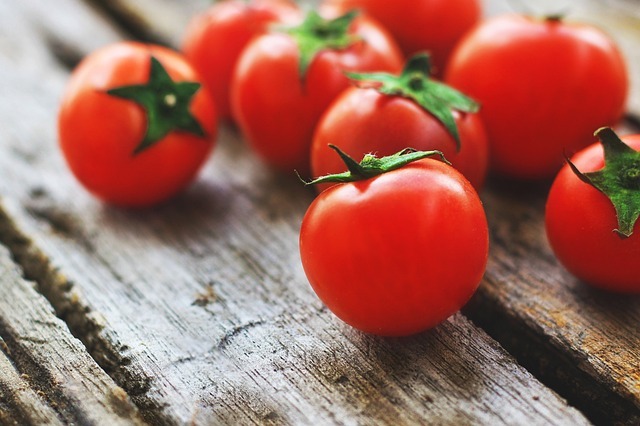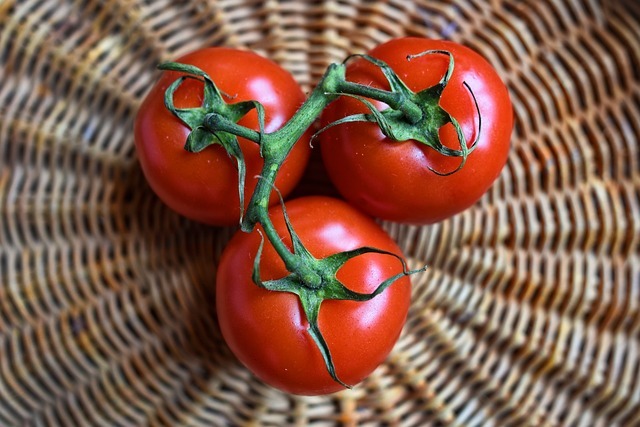Subheading: The Power of Essential Oils in Enhancing Well-Being
When it comes to nourishing our senses and promoting overall well-being, aromatherapy has emerged as a powerful tool. This ancient practice harnesses the natural essences found in essential oils to create an atmosphere that not only delights our olfactory receptors but also impacts our emotional and physical health. Imagine stepping into a serene space filled with the invigorating scent of citrus or the calming aroma of lavender. Such experiences have the potential to transport us to a place of tranquility, relieving stress and imbuing us with a renewed sense of vitality.
But how does aromatherapy work? It’s all about the chemical compounds present in essential oils. Each oil contains a unique combination of substances that trigger specific responses in our brain. For example, inhaling the refreshing scent of lemon can uplift our mood and energize us, while the soothing fragrance of chamomile can help promote relaxation and aid in better sleep. These precious oils can be used in various ways, such as through diffusers, massage oils, or even added to bathwater. By incorporating aromatherapy into our daily lives, we can create a harmonious environment that supports our overall well-being.
In addition to the aromatic benefits, aromatherapy can be combined with nutritious recipes to enhance our physical health. Just as certain scents can uplift or soothe our senses, certain foods can provide nourishment and promote vitality. Consider blending the invigorating scent of peppermint with a refreshing smoothie packed with nutrient-rich fruits and vegetables. Not only will you delight your taste buds, but you’ll also provide your body with a natural boost of vitamins and antioxidants.
The key is to explore the diverse world of essential oils and experiment with different combinations in your recipes. For instance, you can infuse a simple salad dressing with the earthy aroma of rosemary or add a few drops of bergamot oil to your morning tea for a citrusy twist. By embracing the synergy between aromatherapy and nutritious recipes, you can elevate your daily routine into a delightful sensory experience that nurtures both body and mind.
Unlocking the Power of Scent: How Aromatherapy Enhances Well-being and Health
Have you ever noticed how a whiff of your favorite scent can instantly transport you to a cherished memory or uplift your mood? It’s incredible how fragrances have the power to evoke emotions and influence our well-being. This is precisely what aromatherapy harnesses – the therapeutic potential of scents to enhance our physical, mental, and emotional health.
Aromatherapy, an ancient practice that has gained popularity in recent years, utilizes essential oils extracted from plants to promote healing and well-being. These potent oils are derived from various parts of plants, such as leaves, flowers, stems, and roots. Each essential oil possesses its unique properties, making aromatherapy a versatile tool to address a wide range of health concerns.

Apart from their impact on emotions, essential oils also possess remarkable physical benefits. Many oils exhibit anti-inflammatory, antibacterial, and analgesic properties, which can aid in relieving ailments such as headaches, muscle pain, and respiratory issues. Tea tree oil, renowned for its antiseptic qualities, can be used topically to treat skin conditions like acne and eczema. Eucalyptus oil, with its decongestant properties, offers relief from nasal congestion and sinusitis.
Aromatherapy can be experienced in various ways, including diffusing oils, adding them to bathwater, or receiving gentle massages infused with essential oils. The versatility of these methods allows individuals to incorporate aromatherapy into their daily routines, creating a personalized and enjoyable wellness practice.
From Fragrance to Flavor: Exploring the Intersection of Aromatherapy and Nutritious Cooking
Are you tired of the same old bland meals? Would you like to add a touch of aromatic delight to your cooking while boosting the nutritional value? Look no further, as we delve into the fascinating world where fragrance meets flavor: the intersection of aromatherapy and nutritious cooking.
Imagine walking into a kitchen filled with the enticing scents of herbs, spices, and essential oils. The aroma alone can awaken your senses and set the stage for a culinary adventure. But it doesn’t stop there. Aromatherapy, the art of using scents to promote physical and mental well-being, can also enhance the nutritional value of your dishes.
By incorporating fragrant ingredients like fresh basil, rosemary, or lemon zest into your cooking, you not only tantalize your taste buds but also infuse your meals with additional health benefits. These aromatic wonders contain essential oils and phytochemicals that possess antimicrobial, antioxidant, and anti-inflammatory properties. They can aid in digestion, support immune function, and even reduce stress levels.

When it comes to incorporating aromatherapy into cooking, essential oils are a game-changer. These highly concentrated plant extracts capture the essence of various herbs, spices, and fruits. Just a few drops of lavender oil can turn an ordinary bowl of oatmeal into a fragrant morning delight. However, it’s important to choose high-quality, food-grade essential oils and use them sparingly to avoid overpowering your dishes.
The beauty of combining aromatherapy and nutritious cooking lies in the endless possibilities it offers. You can experiment with different scents and flavors, creating a symphony of tastes that nourishes both body and soul. So why not embark on this fragrant culinary journey and let your senses guide you to a world where the aroma and taste go hand in hand?
The fusion of aromatherapy and nutritious cooking opens up a universe of extraordinary flavors and well-being. By harnessing the power of scents and incorporating aromatic ingredients into your meals, you not only create a sensory experience but also boost the nutritional value of your dishes. So, get ready to tantalize your taste buds and nourish your body with the delightful intersection of fragrance and flavor.
Aromatherapy in the Kitchen: Transforming Everyday Recipes into Sensory Experiences
Have you ever wondered how to elevate your cooking from ordinary to extraordinary? Imagine a kitchen filled with tantalizing aromas that awaken your senses and transport you to a world of flavors. That’s where the magic of aromatherapy in the kitchen comes into play, allowing you to transform everyday recipes into sensory experiences that delight both your palate and your soul.
Aromatherapy, often associated with relaxation and spa treatments, goes beyond its traditional boundaries and finds a new purpose in the realm of culinary arts. By incorporating essential oils and aromatic herbs into your cooking, you can create a symphony of scents that enhance the taste and appeal of your dishes.
One way to infuse the power of aromatherapy into your culinary creations is by using essential oils. These concentrated plant extracts pack a punch of flavor and fragrance, making them ideal for enhancing the essence of your favorite recipes. For example, a few drops of lavender oil in a batch of freshly baked cookies can add a delicate floral note that transports you to a serene garden.
Herbs are another fantastic tool in the aromatherapy arsenal. From vibrant basil to earthy rosemary, these fragrant plants not only bring depth to your dishes but also contribute to your overall well-being. As you chop fresh herbs and release their captivating aromas, you’re not just adding flavor; you’re engaging your senses in a full-bodied experience.
But why stop at herbs and essential oils? The world of spices opens up a whole new world of sensory exploration. Cinnamon, with its warm and comforting scent, can turn a simple bowl of oatmeal into a cozy embrace on a chilly morning. Nutmeg adds a touch of sweetness to savory dishes, while cumin infuses an exotic flair into your culinary creations.
By embracing the art of aromatherapy in the kitchen, you have the power to transform your everyday cooking into a sensorial journey. Let the scents guide your taste buds, and allow the flavors to transport you to far-off lands. Aromatherapy in the kitchen is not just about food; it’s about creating moments of pure bliss, where every bite becomes an experience worth savoring.
So, next time you step into your kitchen, take a moment to explore the possibilities. Unleash the power of aromatherapy through essential oils, herbs, and spices, and watch as your meals come alive with captivating scents. Your senses will thank you, and your taste buds will rejoice in the symphony of flavors. Get ready to embark on a culinary adventure like no other, where every dish becomes a work of art for both your palate and your soul.
The Science Behind Aromatherapy: Understanding the Impact of Scents on Our Mood and Appetite
Introduction:
Have you ever wondered why a certain smell can transport you back in time or evoke strong emotions? The answer lies in the fascinating world of aromatherapy. Beyond just pleasant scents, aromatherapy harnesses the power of essential oils to positively influence our mood and even our appetite. Let’s delve into the science behind this captivating practice and uncover how scents can have such a profound impact on our well-being.
The Connection Between Smell and Emotions:
Our sense of smell is intricately connected to our emotions. When we inhale a particular scent, it travels through the olfactory system to the brain’s limbic system, which is responsible for regulating emotions and memories. This direct pathway allows smells to trigger powerful emotional responses and associations. For example, the aroma of freshly baked cookies might evoke feelings of warmth and comfort, while the scent of lavender can promote relaxation and calmness.
Aromatherapy and Mood Enhancement:
Aromatherapy utilizes essential oils extracted from plants to promote positive emotional states. Each essential oil possesses unique chemical compositions that interact with receptors in our brain, influencing neurotransmitters like serotonin and dopamine, which are known as “happy chemicals.” Citrus scents, such as lemon and orange, are renowned for their uplifting properties, boosting energy levels and combating stress. On the other hand, floral essences like rose and jasmine can instill a sense of tranquility and reduce anxiety.
Appetite Regulation Through Aromatherapy:
Believe it or not, scents can also play a role in controlling our appetite. Certain aromas have been found to stimulate or suppress hunger. For instance, the scent of peppermint has been shown to curb cravings and reduce overall food intake. On the contrary, the aroma of vanilla can enhance the perception of sweetness, potentially satisfying our sweet tooth with smaller portions. Aromatherapy can be a useful tool for individuals striving to maintain a healthy diet or manage weight.
Harnessing the Power of Aromatherapy:
Integrating aromatherapy into our daily lives is easier than you might think. Essential oils can be diffused in the air, applied topically, or incorporated into bath products and massage oils. Experimenting with different scents allows us to discover the ones that resonate most with our individual needs and preferences.
Conclusion: